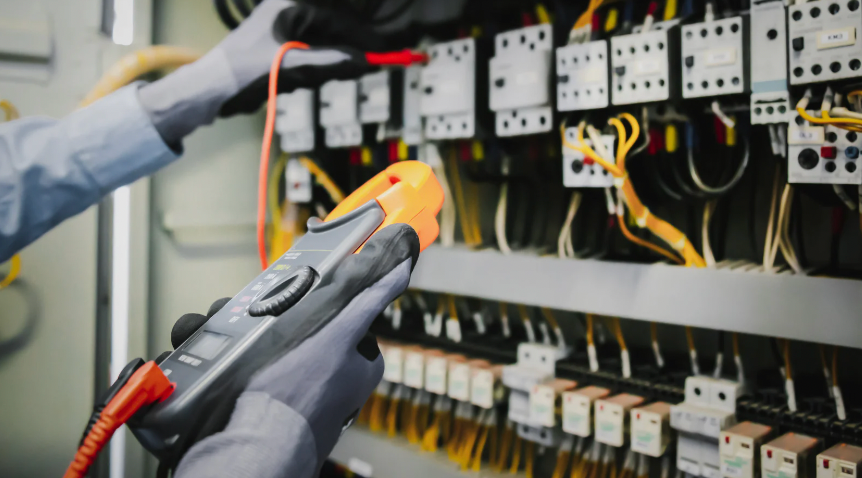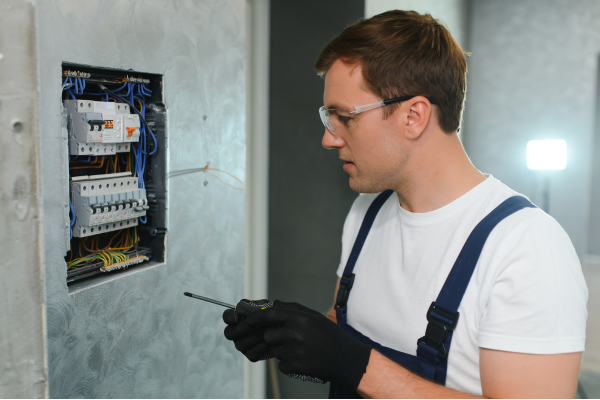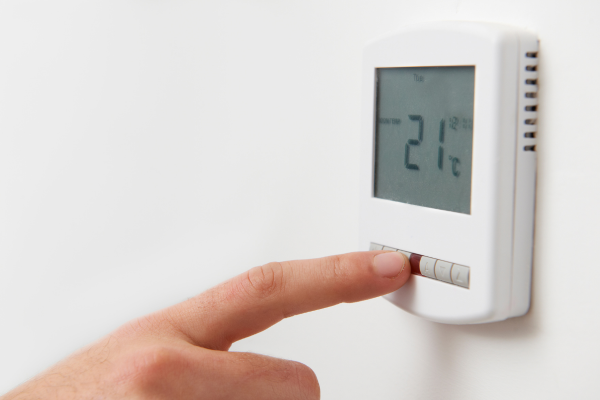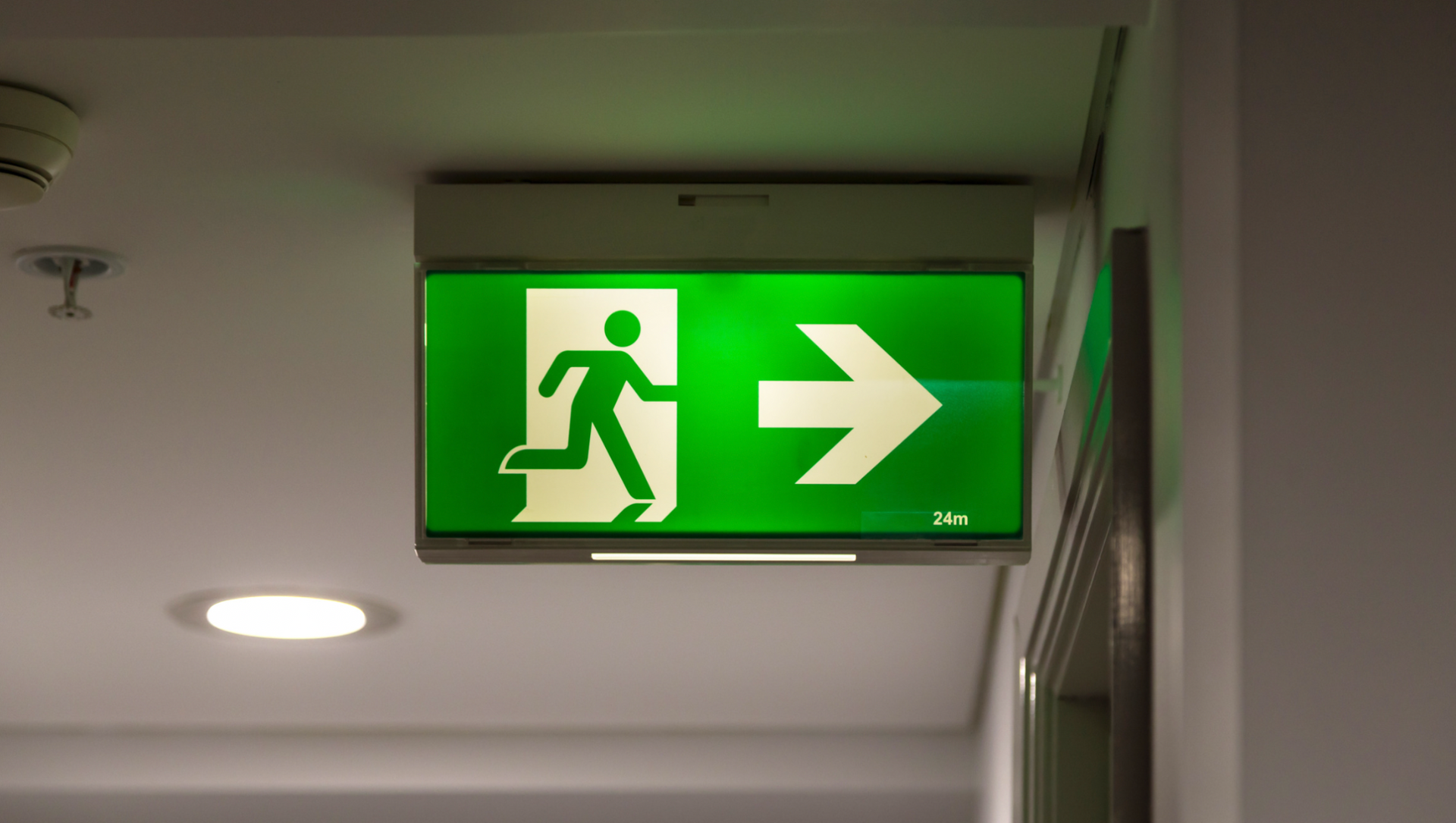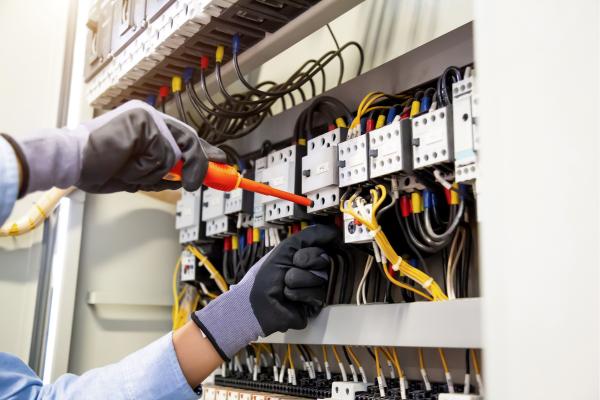
What Certificates Does a Landlord Need?
If you’re a landlord in the UK, you’ve probably asked yourself, What certificates do I need to rent out my property legally? Well, you’re not alone. Navigating the maze of regulations can be overwhelming, but we’re here to simplify things for you. Ensuring your rental property complies with legal requirements not only keeps you on the right side of the law but also ensures the safety and comfort of your tenants.
This article will explore all the essential certificates landlords need to secure, why they matter, and how to obtain them. So, let’s dive right in.
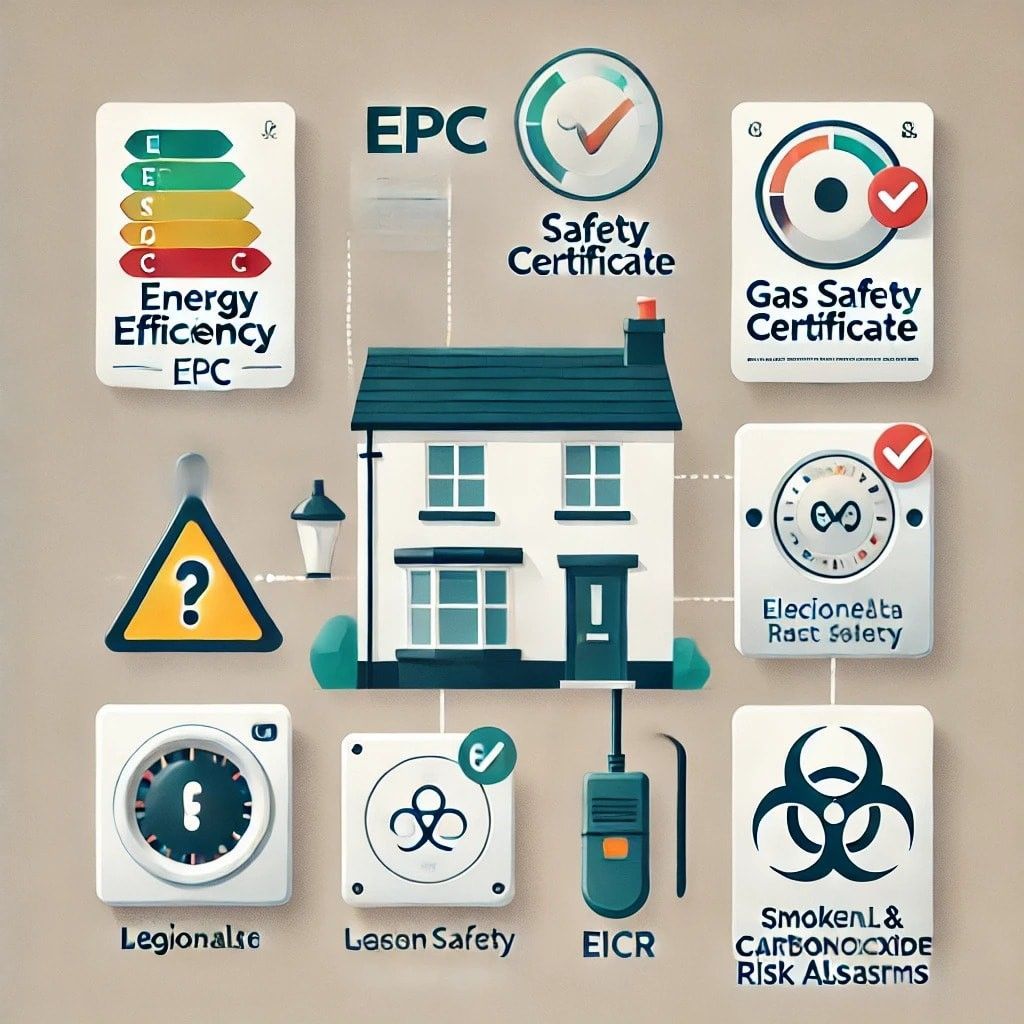
Why Landlord Certificates Are Important
Landlord certificates aren’t just bureaucratic red tape—they’re crucial for maintaining tenant safety and ensuring your property meets legal standards. Without them, landlords risk hefty fines, legal action, or even being banned from renting out properties. Certificates give tenants peace of mind, knowing their home is safe and energy-efficient.
Essential Certificates Every Landlord Needs
Energy Performance Certificate (EPC)
What Is an EPC?
An Energy Performance Certificate (EPC) measures a property’s energy efficiency. It rates your property on a scale from A (most efficient) to G (least efficient).
Why Is an EPC Important?
Prospective tenants can see how much it will cost to heat and power their homes. UK landlords must achieve an E rating to legally rent out their property.
How to Obtain an EPC
You’ll need to hire an accredited assessor to inspect your property. They’ll evaluate features like insulation, heating systems, and double glazing to determine the rating.
Gas Safety Certificate
What Is a Gas Safety Certificate?
The Gas Safety Certificate confirms that all gas appliances and fittings in the rental property are safe and compliant with safety standards.
Legal Requirements for Gas Safety
Landlords are legally required to arrange an annual gas safety check by a Gas Safe registered engineer. This check ensures that appliances like boilers, ovens, and gas heaters function safely.
Annual Gas Safety Check
Once the inspection is complete, you’ll receive a Gas Safety Record. This document must be provided to new and existing tenants within 28 days of the inspection.
Electrical Installation Condition Report (EICR)
Purpose of an EICR
The Electrical Installation Condition Report (EICR) assesses the safety of your property’s electrical installations, such as fuse boxes, light switches, and wiring.
What Does the Report Highlight?
The report identifies any urgent repairs needed to keep the electrical system safe and compliant with current regulations.
Who Can Issue an EICR?
Only qualified electricians can issue an EICR, and it’s legally required to have one at least every five years or when a new tenancy begins.
Additional Safety Certificates for Landlords
Legionella Risk Assessment
Understanding Legionella Bacteria
Legionella bacteria can thrive in stagnant water systems, posing a health risk to tenants.
How to Conduct a Risk Assessment
A qualified engineer can assess your water pipes, cold water tanks, and other systems to ensure they don’t harbour Legionella bacteria.
Smoke Alarm and Carbon Monoxide Alarm Compliance
Smoke Alarms
UK regulations require landlords to install smoke alarms on every property floor.
Carbon Monoxide Alarms
A carbon monoxide alarm is required near any solid fuel-burning appliance, such as a wood-burning stove or gas heater.
Fire Safety Regulations
Compliance with fire safety regulations includes installing fire alarms, maintaining emergency lighting, and ensuring fire escape routes are clear and accessible.
Additional Certificates for Certain Properties
Solid Fuel Burning Appliance Inspection
If your property features a wood-burning stove or similar appliance, regular inspections ensure they’re safe.
Air Conditioning Units
Landlords with properties that have air conditioning units must ensure they’re inspected and maintained according to safety standards.
Responsibilities of Landlords for New Tenancies
When a new tenancy begins, landlords must provide tenants with copies of all relevant certificates, including the EPC, Gas Safety Record, and EICR.
Certificates for Houses in Multiple Occupations (HMO)
Houses in Multiple Occupations (HMOs) have additional safety requirements, such as fire doors, emergency lighting, and stricter electrical safety standards.
How to Stay Compliant with Local Authorities
Staying updated with regulations from your relevant local authority is essential, as requirements vary based on location.
Maintaining Records and Providing Copies to Tenants
Landlords should keep written confirmation of all inspections and certificates. Providing copies to tenants not only fulfils legal requirements but also builds trust.
Conclusion
Ensuring your rental property has the necessary certificates isn’t just a legal requirement—it’s a critical step in providing tenants with a safe and comfortable living environment. Compliance with regulations will protect you from fines and keep your tenants happy.
FAQs
What is the purpose of an Energy Performance Certificate (EPC)?
The EPC provides information on a property’s energy efficiency and offers suggestions for improvement.
How often do I need a Gas Safety Certificate?
A Gas Safety Certificate must be renewed annually after a gas safety check.
Who can issue an Electrical Installation Condition Report (EICR)?
Only a qualified electrician can issue an EICR after inspecting your property’s electrical systems.
Is a Legionella Risk Assessment legally required?
While not always mandatory, it’s highly recommended to ensure the safety of your water systems.
Do landlords need to provide fire safety equipment?
Yes, landlords must provide smoke and carbon monoxide alarms and maintain fire escape routes.
Phone: 07494 124758
Address:: 21 Roehampton Lane Putney SW15 5LS
Email: JRO-Electrics@outlook.com
Services Areas
Earlsfield | Streatham | Balham | Ealing | Richmond | Twickenham Hammersmith | Kingston Upon Thames
Further Useful Reading
How Often Should You Test Your Appliances?
Why Does Your Business Need an EICR Today?
What Our Clients Think
Our Testimonials


EV Charger in our garage & Fusebox With the associated wiring. He did a excellent job in ONE day He was friendly pleasant & helpful. I have no hesitation in recommending his company
Sunil

We've had the team work on two of our properties now, from more complex electrical working to spotlights. We've always been delivered with the service and quality! Would highly recommend if you're looking for a reliable service.
Lizzy Dring

Jordan was extremely professional from start to finish. Kept me updated as to when he would be able to come to save me hanging around all day and completed the certification quickly. Plus spotted that the fire alarms were out of date and managed to replace those on the same visit too
Chris White

Get in Touch
Get in Touch
We will get back to you as soon as possible.
Please try again later.
Whether it's a new light installation or rewiring in London, JRO Electrics is here to help.
Contact Information
Phone Number:
Email Us:
Quick Links
© Copyright 2025 | All Rights Reserved | JRO Electrics Ltd


